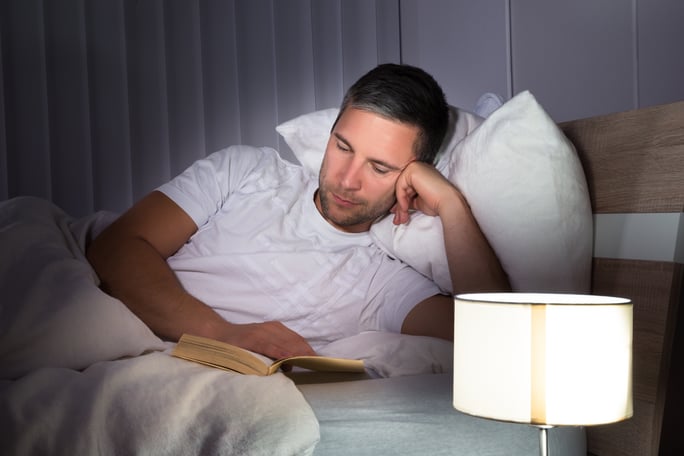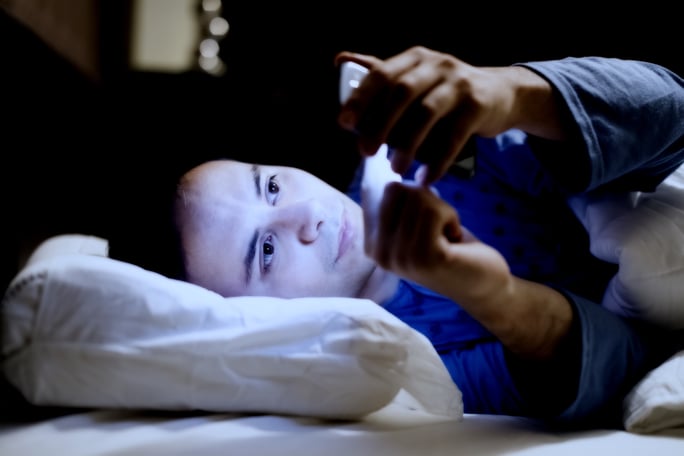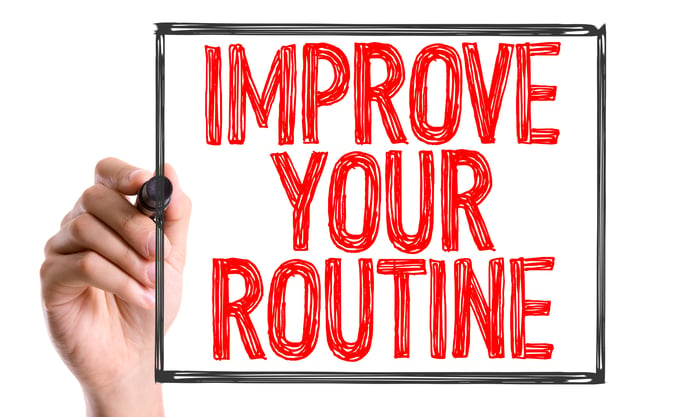Most of us have a routine we follow. We get up at the same time, go through the same steps to get ready for the day, and even have the same thing for breakfast. There are many reasons we follow routines. We may do it out of habit, or do it because it’s comfortable, or maybe it’s the most effective and efficient way to go about our days. Our habits and routines can even make us more successful according to an article recently published in the Harvard Business Review.
Our nightly routines are very similar, and arguably even more important than our morning and daily routines. For those of us struggling with sleep, setting an effective nightly routine can produce drastic improvements in your quality of sleep.
Ask yourself the following questions:
- What time do I go to sleep?
- Do I stick to a regular bedtime?
- Do I watch TV right before going to bed?
- Do I fall asleep watching TV?
- Do I check my smartphone right before going to bed?
If you answered yes to any of the questions above, it may be time to reevaluate your bedtime habits. But the good news is that it doesn’t take a herculean effort to improve your nightly routine. With a few simple tweaks and changes, you can start getting the sleep you deserve.
Establish a Regular Bedtime

According to the National Sleep Foundation, adults need 7 to 8 hours of sleep each night. Since most adults have places to go and things to do in the morning, knowing what time we need to wake up is easy. However, according to a recent Gallup Poll Study, 40% of adults in the United States are not getting enough sleep.
Establishing a regular bedtime may mean cutting some things out of your schedule. You may need to wait till the next day to watch a TV show or movie, come home early from hanging out with friends, or manage other competing priorities as needed.
Gradually Wind Down

Now that you have an established bedtime, schedule some time to unwind before going to sleep.
The Good Sleep Expert, Sammy Margo, advocates that adults need time to relax before going to sleep. She compares sleep habits to light switches. Some of us believe we have an on / off switch associated with our heads hitting our pillow. However, after staring at the ceiling and counting sheep, we’re still wide awake.
Margo says, “We’re going, going, going, we lie down in bed, and we’re wide awake. We’re not switches. We’re dimmer switches. We need to be gradually wound down.”
Although we all have different ways to relax and unwind, the important thing is to make time to do it before going to sleep. Some may need 10 minutes, and some may need 30. If your bedtime is 10:30 p.m., and you need 10 minutes to unwind, start that process at 10:20 p.m., not 10:30 p.m. This will ensure you’re not eating into actual sleep time.
To unwind, choose an activity that will help you unwind. You may want to read, practice relaxation exercises (see our post on simple sleep breathing exercises), listen to music, pray or meditate, or talk with your partner, family, or friends.
Limit Technology

The National Sleep Foundation counsels to turn off electronics in the bedroom before going to sleep. Electronics emit light to the brain and promotes wakefulness, making it difficult to unwind. However, in a plugged-in world, unplugging can be difficult.
Last year Deloitte released a study of smartphone users in the United States. Among their findings, Deloitte reported that smartphone users check their phones on average 46-74 times a day, with nearly all participants checking their phone within 5 minutes of waking up and going to sleep.
If you are struggling with sleep, try turning off your phone during your time to unwind. If you’re using your phone as an alarm clock, invest in an alarm clock, or use another device that is not connected to the internet. There are options on most smart phones to restrict notifications and alerts during sleep hours as well if that works best for you.
You may want to limit electronic devices from your bedroom altogether. James Bond star Daniel Craig and his wife, Rachel Weisz, currently ban all technology from their bedroom.

Although that may be extreme for some of us, think about other ways to limit your exposure to electronics before sleeping. Simply not checking your phone before you go to sleep is a great start.
If you live in Alaska and you would like to speak to a sleep specialist about improving your bedtime routine, please click the link below.












